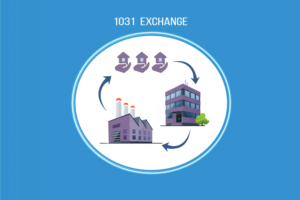1031 exchange, corcapa 1031 advisors, delaware statutory trust, dst, delaware statutory trusts, southern california, ipx1031
1031 exchange companies in orange county ca, 1031 exchange orange county, 1031 exchange orange county ca, 1031 exchange company orange county, 1031 tax exchange orange county, orange county 1031 exchange properties for sale
What is a Section 1031 Exchange?
A Section 1031 exchange allows property owners to defer capital gains taxes on the sale of an investment property by reinvesting the proceeds into a similar property. This tax strategy is particularly beneficial for real estate investors looking to upgrade or diversify their property portfolios without incurring immediate tax liabilities.
The key to a successful Section 1031 exchange lies in adhering to specific IRS regulations. For instance, the properties involved must be of "like-kind," meaning they must be similar in nature or character. Additionally, the exchange must be completed within strict timelines, including identifying a replacement property within 45 days and closing on it within 180 days after the sale of the original property.
Benefits of Using a Section 1031 Intermediary
Engaging a Section 1031 intermediary is crucial for navigating the complexities of the exchange process. These professionals help ensure compliance with IRS regulations and facilitate the smooth transfer of funds between the sale of the original property and the purchase of the new one, thereby minimizing the risk of tax liabilities.
Moreover, intermediaries provide valuable insights into the market and can assist in identifying suitable replacement properties. Their expertise not only streamlines the transaction but also helps investors make informed decisions that align with their financial goals, ultimately maximizing the benefits of the exchange.
Common Misconceptions About 1031 Exchanges
Many property owners hold misconceptions about Section 1031 exchanges, such as believing that they can defer taxes indefinitely or that any property sale qualifies for the exchange. In reality, the IRS has specific criteria that must be met, including the requirement for the properties to be held for investment or productive use in a trade or business.
Additionally, some individuals think they can access cash from the sale without consequences. However, any cash received, known as "boot," may be subject to taxation. Understanding these nuances is essential for property owners to fully leverage the benefits of a 1031 exchange and avoid unexpected tax liabilities.
Steps to Successfully Complete a 1031 Exchange
Completing a 1031 exchange involves several critical steps to ensure compliance with IRS rules and successful tax deferral. First, the property owner must sell their original investment property and engage a qualified intermediary to handle the proceeds. Next, they must identify potential replacement properties within the designated 45-day window.
After identifying a suitable property, the investor must complete the purchase within 180 days of the sale. Throughout this process, it is vital to maintain clear communication with the intermediary and ensure all transactions are properly documented to avoid complications during tax reporting.
1031 exchange, corcapa 1031 advisors, delaware statutory trust, dst, delaware statutory trusts, southern california, ipx1031
1031 exchange companies in orange county ca, 1031 exchange orange county, 1031 exchange orange county ca, 1031 exchange company orange county, 1031 tax exchange orange county, orange county 1031 exchange properties for sale
What is a Section 1031 Exchange?
A Section 1031 exchange allows property owners to defer capital gains taxes on the sale of an investment property by reinvesting the proceeds into a similar property. This tax strategy is particularly beneficial for real estate investors looking to upgrade or diversify their property portfolios without incurring immediate tax liabilities.
The key to a successful Section 1031 exchange lies in adhering to specific IRS regulations. For instance, the properties involved must be of "like-kind," meaning they must be similar in nature or character. Additionally, the exchange must be completed within strict timelines, including identifying a replacement property within 45 days and closing on it within 180 days after the sale of the original property.
Benefits of Using a Section 1031 Intermediary
Engaging a Section 1031 intermediary is crucial for navigating the complexities of the exchange process. These professionals help ensure compliance with IRS regulations and facilitate the smooth transfer of funds between the sale of the original property and the purchase of the new one, thereby minimizing the risk of tax liabilities.
Moreover, intermediaries provide valuable insights into the market and can assist in identifying suitable replacement properties. Their expertise not only streamlines the transaction but also helps investors make informed decisions that align with their financial goals, ultimately maximizing the benefits of the exchange.
Common Misconceptions About 1031 Exchanges
Many property owners hold misconceptions about Section 1031 exchanges, such as believing that they can defer taxes indefinitely or that any property sale qualifies for the exchange. In reality, the IRS has specific criteria that must be met, including the requirement for the properties to be held for investment or productive use in a trade or business.
Additionally, some individuals think they can access cash from the sale without consequences. However, any cash received, known as "boot," may be subject to taxation. Understanding these nuances is essential for property owners to fully leverage the benefits of a 1031 exchange and avoid unexpected tax liabilities.
Steps to Successfully Complete a 1031 Exchange
Completing a 1031 exchange involves several critical steps to ensure compliance with IRS rules and successful tax deferral. First, the property owner must sell their original investment property and engage a qualified intermediary to handle the proceeds. Next, they must identify potential replacement properties within the designated 45-day window.
After identifying a suitable property, the investor must complete the purchase within 180 days of the sale. Throughout this process, it is vital to maintain clear communication with the intermediary and ensure all transactions are properly documented to avoid complications during tax reporting.

